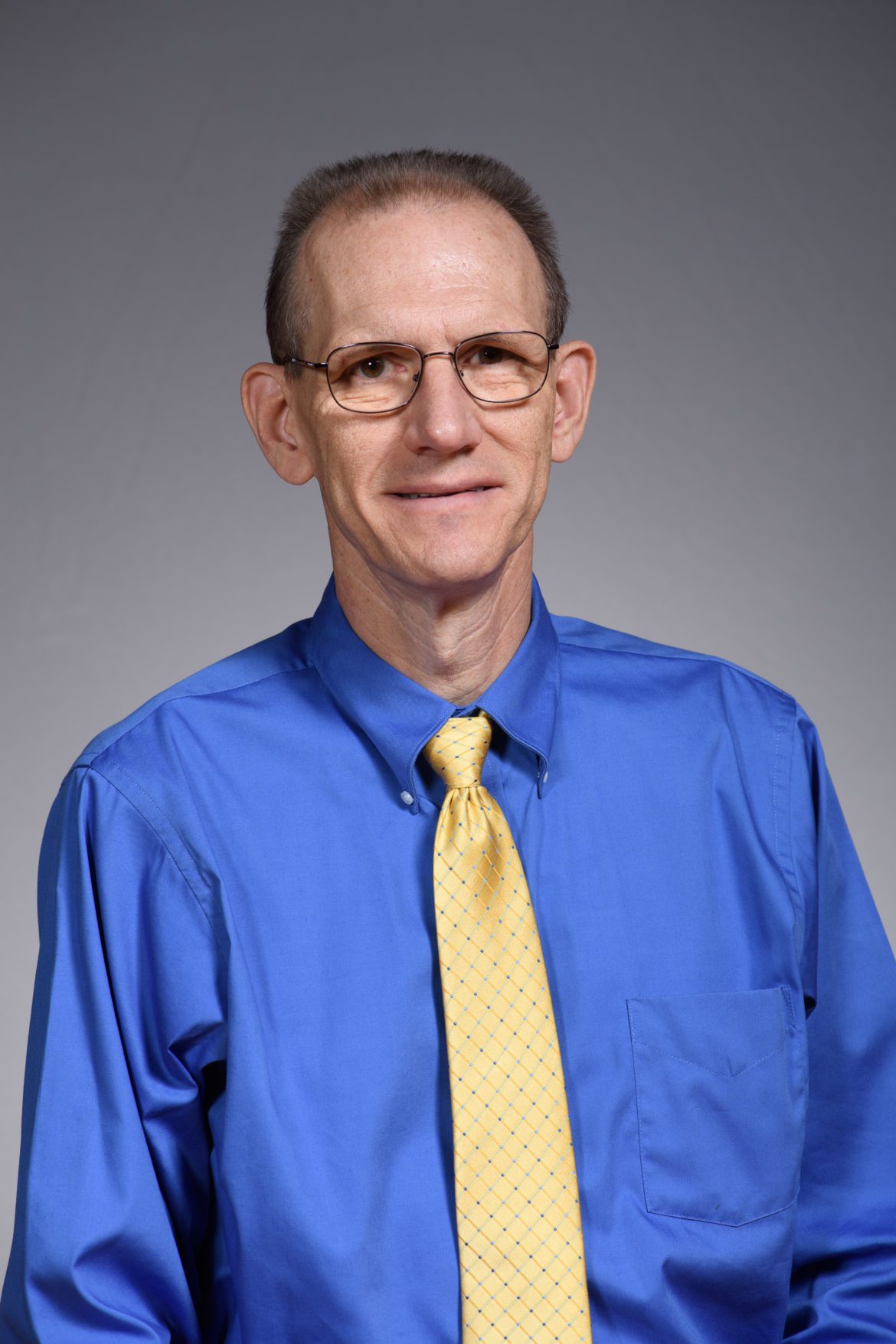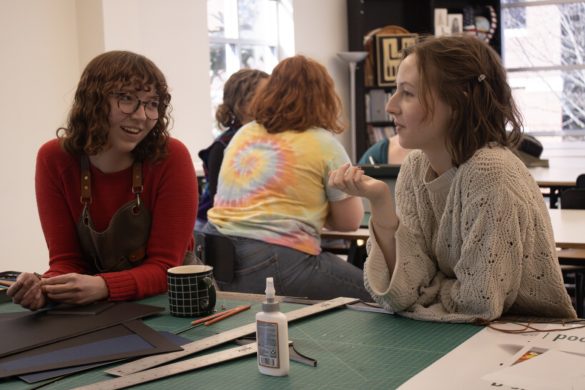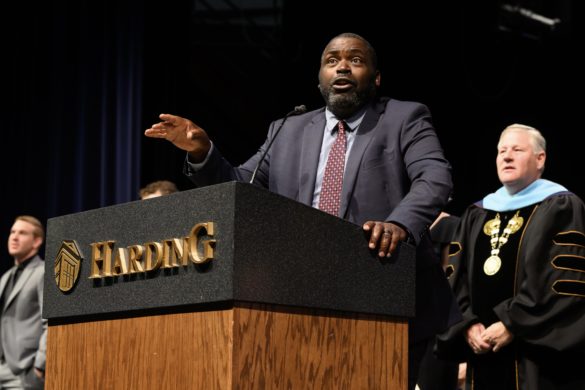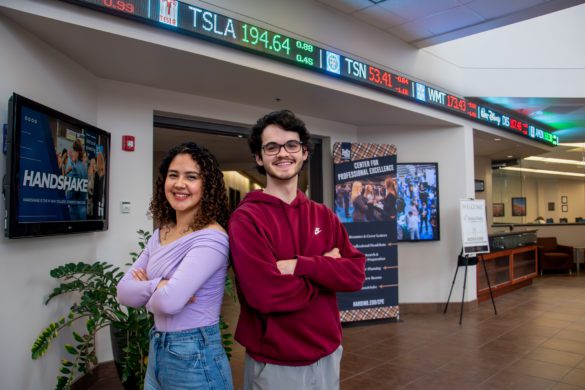Written by Emma McDaris
The 50th anniversary of Harding’s Spring Sing brought back memories for many in the Harding community. For one faculty member, the nostalgia didn’t just include one specific show, but all 50.
Robin Miller, a professor of theatre at Harding, was involved as an audience member for several years before moving to technical and directorial positions. He sat down with The Bison and talked about watching the legacy of Spring Sing grow.
Q: What was your first introduction to and experience with Spring Sing?
A: My first intro to Spring Sing was basically welcome to Harding. My freshman year was the year that Spring Sing started. So I worked on the show, helped build what set we had for it [and] worked with some of the rehearsals — not actually on the run crew for that one. I actually got to sit in the audience. But from then on, I was some version of backstage or in a booth somewhere working with the show.
Q: In what memorable ways has this experience evolved, and how do you hope that it continues to evolve?
A: Spring Sing has changed a lot during the years — not only from an auditorium that seats at that time about 1,200 to an auditorium that seats three times that, but in its structure and its makeup. It has evolved as entertainment has evolved [and] as Harding has evolved. Think about the title of the show: Spring Sing. When it first started, it was primarily a vocal competition. Singing was very much a part of the Harding experience at the time. We didn’t have portable music. People would stand in the cafeteria lines and sing just as something central today. People would get together on the front lawn and sing for a while. The phrase was “At Harding, We Sing” and it was very real. So what happened was when the Spring Sing first started, the focus was on the singing. The clubs actually performed on choral risers. What visuals there were was wearing the costumes. There was a conductor onstage like you’re used to seeing with a chorus who conducted but was more of an entertainer. And because they’re on choral risers, there were some simple hand motions, but it was not anywhere near the kind of visual piece it is today. The hosts and hostesses performed in front of the curtain because there wasn’t a lot of space. There was not the ensemble to back them up that there is now. The jazz band literally sat on the floor in front of the front row, and then we often had a band or a small combo on stage with the clubs because vocals [were] so important, and most of the clubs actually had a harmony acapella section somewhere built into their shadows. Over time movement got bigger.
Q: Why should anyone care about Spring Sing?
A: A lot of people ask, “Why do the show?” One, it’s a lot of fun. It’s fun for the audience, and although it is work, it is fun for the people involved. But this show does a whole lot more than just entertain. This show is very much a fabric of the social life of this campus. Club rehearsals are as much social events as they are work events for the opening night. They are chances for people to work on a project together and create memories and get to know people, and yes, you’re with people with your club but [also] people combined from different clubs [and] people who are not in clubs get involved. You get to know folks. The club shows ask a large number of our students to step up and be leaders. It’s a challenge to lead 100 of your peers in a group activity. And as a theatre and music department, a lot of time is spent with those individuals, helping teach them how to be a leader, how to be successful, how to motivate and [having] people [step] up and doing that. Because it’s a huge learning curve, and it produces leadership skills that you don’t get in many places on the undergraduate level — skills that are very, very marketable. It’s those soft skills that we see. The other thing is, Dr. Frye has done the numbers, but participation in Spring Sing is a huge predictor of actually graduating from Harding University. As a rule, and I don’t have the exact number —I’ve heard it but I’ve forgotten it — well over 90% of the people involved in Spring Sing actually graduate from Harding. Very few other events or groups are going to be able to say that. It’s also a huge recruiting tool. A lot of high schoolers come and see the fun we’re having and go, “I want to be a part of that.” And it’s also a great memory for our alumni.
Q: What are you most excited about for the golden anniversary of Spring Sing?
A: For this golden anniversary of Spring Sing this year, I’m excited to basically see what the energy brings to the show of this being the 50th year of Spring Sing and the 100th year of Harding … I’m excited about what this is going to bring, the invitation for old hosts to come back — many of these are people that I actually got to direct — and getting to work with them, and so I am not directly involved with the show this year.






